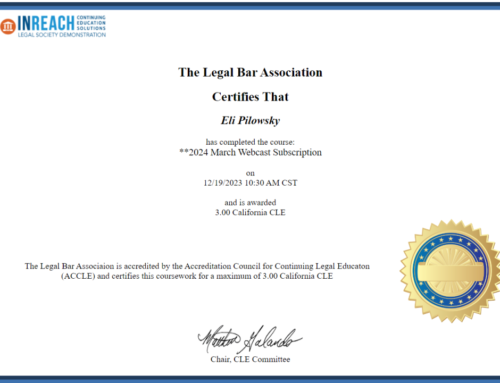How many of you buy a grocery product because your Mom or Dad told you a certain brand was the best? If you are like me, you didn’t do any independent research to verify your parents’ recommendation. You trusted them and acted on it. You’re welcome, Tide. In its simplest form, this is referral marketing.
Referral marketing is defined as a “method of promoting products or services to new customers through referrals, usually word of mouth. Such referrals often happen spontaneously but business can influence this through appropriate strategies.” Studies and surveys have proven that referral marketing is powerful, and it is one of the most effective forms of advertising when it comes to sales.
A Nielsen online survey found that 84% of global respondents, across 58 countries, said referral, also known as “earned advertising” is the most trusted of all advertising. A mere one percent of millennials trust traditional advertising and not only purchase based on referrals but also share referrals. Gen Xers fall into this category too.
Another powerful characteristic of referral advertising is that it is extremely targeted. After all, the goal is to create a personal recommendation to a family member, friend, or colleague. Trust drives the effectiveness of referrals too. Almost all people trust a person’s opinion over standard advertising. Last, with social media, an average consumer can reach many people within seconds! These benefits make referral marketing an attractive way to drive new sales.
The InReach product has features that support referral marketing. If you are not using these features, please consider doing so! If you have any questions on these options, please contact your Client Success Manager.
- Add a ratings and reviews tab to your course description by publishing your evaluations results.
- Activate the “Customer Who Bought This Item Also Bought” feature.
- Encourage your staff, program planners, speakers, and registrants to use the social media choices in the product description: Facebook, LinkedIn, Twitter, Google Plus, and email. It’s an easy post.
- Include evaluation comments on your catalog landing page.
Other ways to use referral marketing:
- Develop a referral campaign for a limited time frame and purpose. Use InReach’s sales survey and discounting options to make this work.
- For example, include in your generic advertising on an upcoming webcast that registrants will receive a discount on a future program if they refer a new learner to the webcast, and the learner registers. The criteria can be of your choosing—a new learner to that program only, or a new learner overall that has never purchased an online course.
- Email last year’s batch of new lawyers and offer them a discount if they refer a brand-new lawyer to buy anything in your online catalog.
- If you have a mandatory course that is also made available through another provider, ask the past registrants of your mandatory course to refer someone that still needs the mandatory offering.
- Include evaluation comments and ratings in all your standard adverting. This works especially well for those programs that are done year after year.
InReach continues to work on other product features that help market and merchandize for you. If any ideas about features that support referral marketing, if you have effectively used referral marketing, or you have some lessons learned to share, pleases contact me. I’d love to hear from you.
Resources:
https://en.wikipedia.org/wiki/Referral_marketing
http://www.adweek.com/digital/marketing-to-millennials-and-the-necessity-of-social-brand-advocacy/
http://www.npr.org/2015/02/24/388592666/how-do-you-market-to-millennials
https://www.extole.com/blog/how-to-crack-the-millennial-code/






